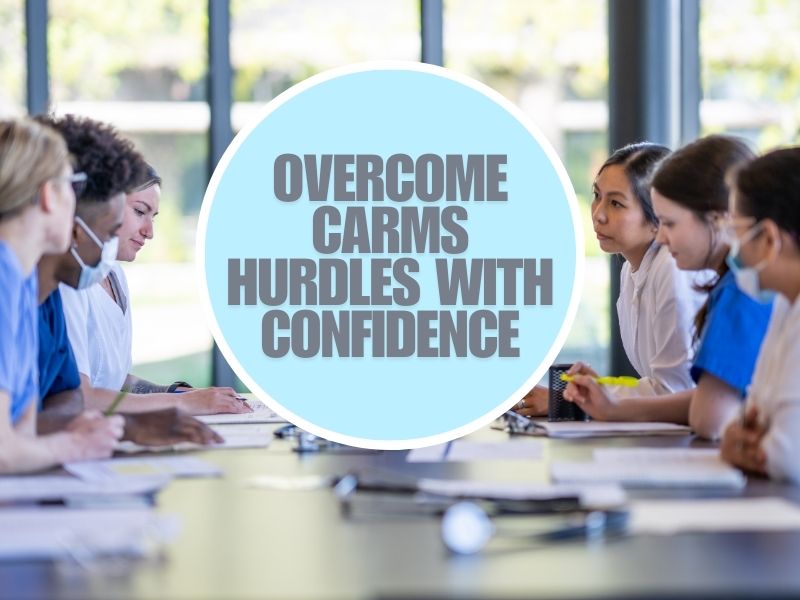While many schools have moved on to multiple mini interviews (MMIs) as their preferred method of assessment for potential MD candidates, there are still institutions such as Western University that stick to tradition and ask you to prepare for a panel interview instead. A medical school panel interview usually involves a variety of interviewers such as physicians, medical students, nurses, and community members (or as I was told on interview day, “a sweet old lady”). There are many similarities between the MMI and panel interviews but also many differences to keep in mind whilst preparing for the latter.
MMI is widely regarded as the less-biased method – hence its popularity – because you are evaluated by multiple groups of judges. Therefore, if you stumble at one station, you have a fresh start at the next stop. Sadly, this is not the case for the panel interview. For panel interviews, first impressions become very important and can dictate the tone of the conversation. There are numerous psychology studies demonstrating that first impression is established quickly and extremely difficult to override.
With that in mind, it is crucial to carry yourself in a confident, polite, and humble fashion. Straight posture, firm handshakes (with everyone at the panel, not just the leader of the group or physician), eye contact, smile, hand gestures – those rules apply as much at the MMI as your panel interview. Some other (less cliché) personal favourite tips of mine are:
- When processing the information of a question, many people tend to look up or sideways. It is better not to do so at the interview as that may be misinterpreted as rolling your eyes/being flustered. Looking down, instead, carries the notion of staying calm and collected.
I cannot stress enough how important staying calm at the interview is. When you become a doctor, you will often encounter unexpected situations. The interviewers want to see you demonstrate sophistication and poise, and that means staying cool even when they throw tough questions, that they may not even know the answers to, at you just to see how you’d react.
- Lean in when being asked a question to indicate your interest. Nodding your head has the same effect – be responsive. Keep the interview interactive.
- Stand until the judges actually tell you to sit down/have some water. While it is important to not be fidgety, many people do not appreciate it when you make yourself too at home.
- Having the same gestures (e.g. folding your arms) as your interviewers can make them subconsciously feel closer and friendlier towards you – also demonstrated through studies. Familiarity breeds likeability. However, don’t make it too obvious! (Or that would be very, very awkward.)
My second main piece of advice would be to work hard on your ice-breaker introduction. Many people on forums have shared their regret of not preparing for the “tell me about yourself” question. Your introduction should involve something niche and/or not presented in the CV. For example, I opened my introduction with my cultural background in which I came from China to Canada alone in Grade 10 barely speaking any English, initially struggled to adapt to Western culture and way of life, and how that has encouraged me to embrace multiculturalism and shaped me as an aspiring physician.
Clearly, a student does not have to live in China to have a great introduction. Every applicant has their own unique, significant achievements. The bottom line is do not open with “Ever since I went to my dad/aunt/family friend’s clinic when I was a kid, I’ve dreamed to be a pediatric neurosurgeon (unless that is truly, truly your reason for choosing medicine). I got a 4.0 GPA throughout undergrad, scored 99th percentile on my MCAT (I strongly discourage highlighting traditional academic achievements during the interview; judges know you are academically qualified to make it here anyway), and volunteered at a hospital…” as those are cookie-cutter deeds that many applicants have under their belt. Your goal is to stand out from the crowd. Ask yourself: How can I convince the committee (in 3 minutes) that I am someone that they would be interested in learning about as a future doctor for the next 40 minutes?
Another important skill to have in your interviewing arsenal would be to “read” the audience. Within a few minutes of conversation, you should have a good grasp on whether this is a serious, professional crowd or a more casual, easygoing one – knowing how to gauge the recipients of your message will prove invaluable when treating patients from diverse backgrounds in the future. Having the same speech style as your interviewers can put them in the comfort zone and only benefit your interview. If you are unsure or the crowd is a mix, it is always safer to stay professional and polished. I am commonly regarded as a jokester by my friends and spent a lot of time honing my “formal” side in case my judges were stern (a moment of silence for all those bad jokes I wanted to tell so badly at mock interviews…). However, on interview day, I quickly realized my audience was a fun crowd and managed to crack some cheeky jokes throughout my responses which earned a few chuckles from my judges and established amazing chemistry with them. Needless to say, this would have backfired if my judges were serious and didn’t appreciate (my attempts at) humour. By gauging my audience, I selected the correct plan to execute and was rewarded with an admission.
The panel interview is more conversational than the MMI. In the MMI, you answer your question and move onto the next station; it is more mechanical. With a panel interview, it is up to you, the applicant, to make it a friendly conversation and quickly establish chemistry with your interviewers. If you can’t do it at the interview, what makes medical admissions have confidence in you making patients comfortable when practicing as a doctor? While preparing for common question types and getting familiarized with CanMEDS beforehand are essential, the interview is the only chance to exhibit the human side of you (Have I mentioned I have a strong distaste for those who excessively muse over their stats during interview?) – make it personal, make it memorable, make it so that the interviewers will say, “Wow. This person is interesting. I have confidence that they would get along with patients in the future.”
Good luck!


